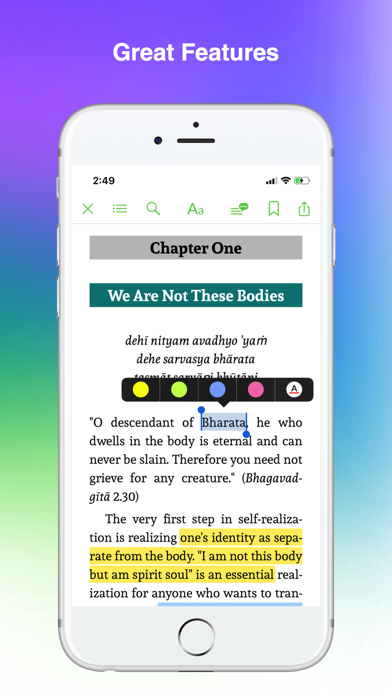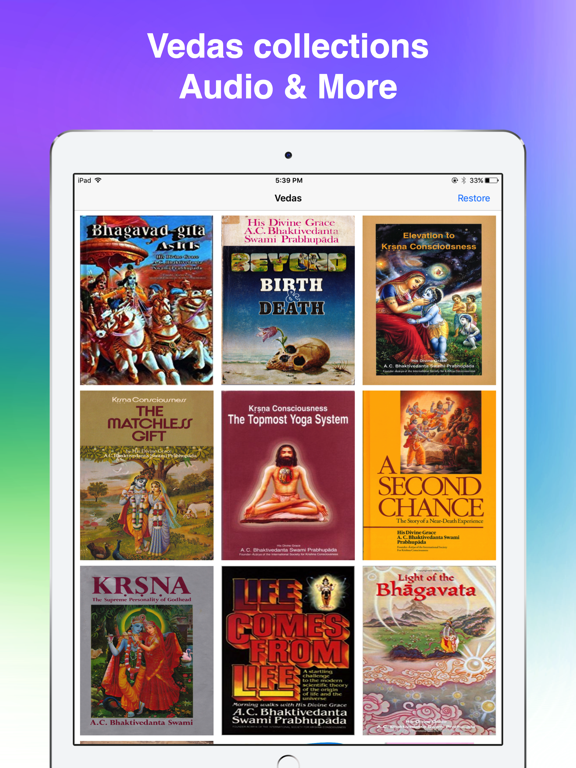Vedas Collections

- Publisher: ChristApp, LLC
- Genre: Books
- Released: 18 Feb, 2018
- Size: 112.0 MB
- Price: FREE!
 Click here to request a review of this app
Click here to request a review of this app
- App Store Info
Description
Pocket Vedas, Hindu Vedas, Bhagavad gita and 31 Books of Srila Prabhupada's.The Vedas are a gathering of songs and different religious writings formed in India between around 1500 and 1000 BCE. It incorporates components, for example, ceremonial material and additionally fanciful records, sonnets, petitions, and equations thought to be holy by the Vedic religion.
The Vedas
The most sacred scriptures of Hinduism are the Vedas ("Books of Knowledge"), a collection of texts written in Sanskrit from about 1200 BCE to 100 CE.
As sruti (revealed texts), the Vedas are regarded as the absolute authority for religious knowledge and a test of Hindu orthodoxy (both Jains and Buddhists reject the Vedas). "For Hindus, the Veda is a symbol of unchallenged authority and tradition."1
Selections from the Vedas are still memorized and recited for religious merit today. Yet much of the religion presented in the Vedas is unknown today and plays little to no role in modern Hinduism.
As historical and religious literature often is, the text is written from the perspective of the most powerful groups: the priests and warrior-kings. Scholars say it is therefore unlikely that it represents the totality of religious belief and practice in India in the first millennium BCE. This perspective is especially evident in the earlier parts of the Vedas, in which the primary concerns are war, rain, and dealing with the "slaves," meaning native inhabitants of India.
Initially, the Vedas consisted of four collections of mantras (Samhitas), each associated with a particular priest or aspect of ritual: Rig Veda (Wisdom of the Verses); Sama Veda (Wisdom of the Chants); Yajur Veda (Wisdom of the Sacrificial Formulas); and Atharva Veda (Wisdom of the Atharvan Priests).
Over the centuries, three kinds of additional literature were attached to each of the Samhitas: Brahmanas (discussions of the ritual); Aranyakas ("books studied in the forest"); and Upanishads (philosophical writings).
In these later texts, especially the Upanishads, the polytheism of the earlier Vedas has evolved into a pantheism focused on Brahman, the supreme reality of the universe. This concept remains a key feature of Hindu philosophy today.

























